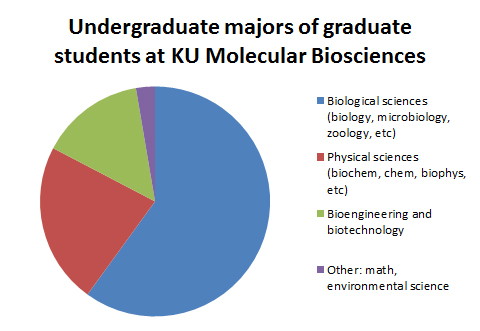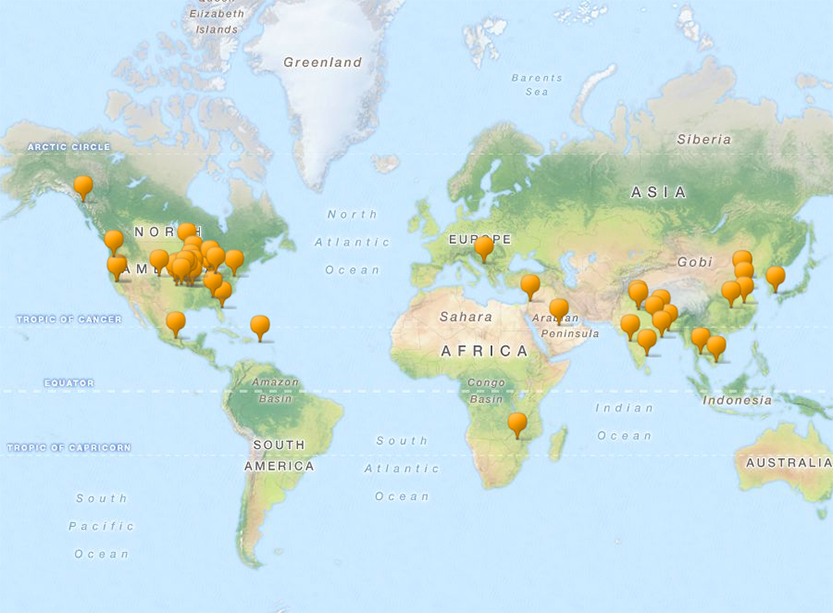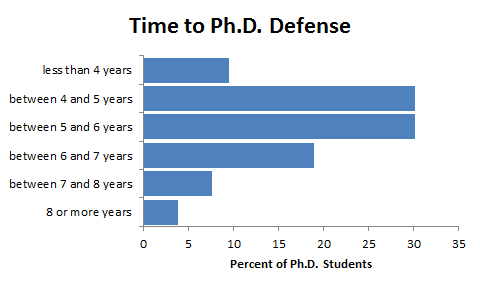Ph.D. FAQs
General Program Questions
Molecular Biosciences is a multidisciplinary biological sciences department. Our laboratories utilize knowledge and techniques from the fields of Biochemistry, Bioinformatics, Cell Biology, Developmental Biology, Genetics and Epigenetics, Immunology, Microbiology, Neurobiology, Structural Biology, and Virology.
The research goals of our faculty are directed toward uncovering novel mechanisms within cells, organisms, and complex environmental and parasitic systems that impact health, development, and disease.
We have Ph.D. programs in Biochemistry & Biophysics; Microbiology; or Molecular, Cellular & Developmental Biology. Additional details about each program can be found on our web pages.
Our graduates have routinely secured prestigious postdoctoral fellowships, assistant professor positions in colleges and universities, or have successfully established careers in industry.
Due to the nature of our common core curriculum, it is difficult to accommodate off-cycle students; although, exceptions can be made in rare circumstances to accommodate advanced or transfer students. Please contact the Director of Graduate Studies, David Davido, at ddavido@ku.edu to discuss your options.
Graduate student body: Who are your students?
Our graduate students have broad scientific interests. Most of the undergraduate majors of the students in our department include Biology, Biochemistry (including Chemical Biology or Biophysics), Biotechnology and Microbiology. Other students have majored in Bioengineering, Biomedical Research, Chemistry, Environmental Science, Genetics, Human Biology, Math, Medicinal Chemistry, Molecular Biology, or Zoology.

While the majority of our graduate students are United States citizens, a number of international students are also included in our program. Nationalities of current graduate students include: Bosnia and Herzegovina, China, India, Jordan, Korea, Mexico, Nepal, Saudi Arabia, Thailand, and Zimbabwe.

Map of the world showing the home towns of our program's graduate students as of November 2015
The total number of graduate students in the Molecular Biosciences graduate program has ranged between 50 and 70 students over the past 10 years. On average, our incoming class size is around 15 students.
Lifestyle
Lawrence, KS is a vibrant college town with a lively atmosphere filled with restaurants, bars, galleries, shops and music venues. It is only a short 45 minute drive from Kansas City, a major metropolitan city. Lawrence, KS is affordable, safe, and experiences all four seasons. Rolling Stone named Lawrence as one of the “best li’l college towns” in the U.S., and Lawrence has appeared on multiple "Best College Towns" lists (College Ranker, Matador Network, Thrillist, American Institute for Economic Research).
All of our students who remain in good academic standing are financially supported for the duration of their studies. Most students receive a starting stipend of $26,951 either from a Graduate Research Assistantship or Graduate Teaching Assistantship.
Academics:Courses, Teaching, Research
Incoming students have a core curriculum, which includes an introductory course covering Biochemistry, Microbiology, Cell Biology and Genetics; a course on scientific techniques; and a course in Scientific Integrity. Each of the three tracks, (Biochemistry, Microbiology, and Molecular, Cellular &Developmental Biology) has specific course requirements, and students enroll in courses that are particular to their field as early as the second semester.
Our comprehensive exams have both an oral and a written component, and the exam is taken by the end of the second year. More details about the comprehensive exam can be found on our curriculum page. After passing a comprehensive exam, students become “doctoral candidates”.
We have a rotation system to help each student find the best fit. Students need not make selections for laboratory rotations before they arrive in Lawrence. In August, all incoming students attend a series of seminars presented by those faculty who will be accepting new students. Between September and April, first-year graduate students rotate through three labs of their choosing. After the rotation period, the selection of a final lab home is based on mutual agreement between faculty and student. If a student is unable to select a lab home after three rotations, additional rotations may be performed, in consultation with the Director of Graduate Studies.
The average time to degree is between 5 to 6 years, with approximately 70% of students completing their degree in 6 years. Our time-to-degree statistics are on par with those of similar Ph.D.-granting institutions.

Former Graduate Student Profile, from Jan 2009 – Aug 2014
Each student is required to hold a Graduate Teaching Assistant appointment for two semesters. This is often done in the first year. Additional semesters of teaching are not required by the department, but are possible, depending on the interests of the students and the needs of their laboratory. After the first year, teaching requirements are negotiated between student and mentor.
You should aspire to communicate your scientific accomplishments by publishing your findings. Standards vary from lab to lab, but in general, publication of at least one major paper will be required in order to receive a Ph.D.
Yes, our students publish 3 to 4 manuscripts, on average, based on their graduate work.
There are more than 40 research laboratories in our department and affiliated departments.
In general, there is only one mentor for each student. However, there are many examples of collaborative research projects between labs with significant input from two or more faculty members. Students also receive input from other faculty members who serve on the student's graduate committee.
We have 17 different research areas represented by the faculty in the department.
Yes, there are multiple competitive graduate student fellowships available for outstanding students.
Yes, our graduate students frequently present their findings in local, national, and international conferences. In addition, we require students to present their research annually in one of two specialized departmental seminars (Cellular & Molecular Proteins and Genetics of Development).
Yes, the department and the university can offer funds to students who would like to present their findings in conferences. Such funding is competitive. Research mentors also fund conference participation.
Applying
You can apply using our online application. Supporting documents should also be uploaded into the application system.
Applications are due by December 1st.
Yes, there is an Application Fee of $65 for domestic applicants and $100 for international applicants. Fee waivers are possible under special circumstances (if interested, please contact the Director of Graduate Studies, David Davido, at ddavido@ku.edu
The University of Kansas GRE and TOEFL code is 6871.
Yes, we strongly advise students to use the online submission site to ensure that all parts of the application have been submitted, including letters of recommendation and official test scores and transcripts. Prospective students should also ensure that their contact information is up-to-date.
A committee of faculty will interview qualified prospective students before admission. In-person interviews, as well as Skype interviews, are conducted.
Campus visits are a great way to meet faculty members and see our facilities. A limited number of applicants will be invited for campus visits. We also sponsor selected minority students for pre-application visits; if you are interested in this program, please email Cassandra Jim at cassandra.jim@ku.edu.
The average quantitative GRE score for admitted students is 157.3. You are welcome to submit scores, however we no longer require this test.
Prospective students must fulfill all the requirements for their undergraduate degrees before they can matriculate into the program. Specific details regarding grades and test scores can be found on our Graduate Admissions page.
The University of Kansas recognizes the April 15 date set by the Council of Graduate Schools as the date by which offers of acceptance and financial support must be finalized. Thus, admissions decisions are typically finalized in mid-April. Signed letters from the Department and the University Graduate Program constitute an official acceptance.
The department is not actively recruiting Master's students at this time. However, we do accept students seeking a Master's under exceptional circumstances. Contact the Director of Graduate Studies David Davido at ddavido@ku.edu if you would like to explore your options.
For International Applicants
We require a minimum of 22 on the speaking TOEFL. All other parts of the exam must have a minimum score of 20. TOEFL scores cannot be more than 2 years old. An IELTS score of 8 or above is required for admission, and the IELTS score cannot be more than 2 years old.
No. A complete application is required in order to be considered for admission.
No. If on the application you indicate that you are a "native English speaker" then the TOEFL is not required.